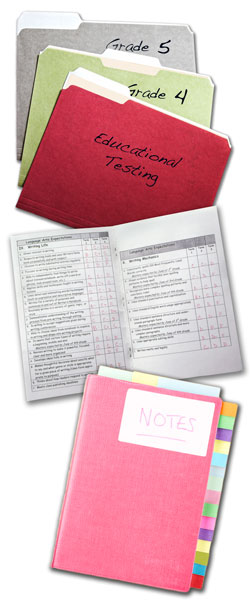Preparing for Your First School Meeting
By Sally Shaywitz, M.D., and Bonnie Patten, Esq

You see your child trying to read but unable to do so; it breaks your heart, and you want to do everything you can to make a real difference. Your goal is to help, and that often begins with talking to the school. Here are some tips to help you prepare—these come from a combined level of experience–from a pediatrician and dyslexia expert and a mother who has been to more school meetings than she can count.
1. Take a Deep Breath As You Repeat to Yourself: “I Am Not Alone.”
Remember, you are not the first person in your school district to have a child who is struggling to read. Dyslexia is very common, affecting 1 in 5 children (and adults); this means that many of your child’s classmates, their parents and teachers have, in some way, faced this before and figured out how best to help. Seek and you will find these helpful individuals within your own school and community. Don’t hesitate to reach out to them, which leads to the next point.
2. Communicate, Communicate, Communicate
Before your meeting with the school, you want to educate yourself—and you can. Reach out, there are many who have been in your shoes who are eager to share their knowledge; others who have learned about dyslexia are often looking to help as well. These potential partners include:
- Your child’s teacher(s)
- Your pediatrician
- Guidance counselor
- School psychologist
- Other parents who have been through the process in your school district
- School’s special education teacher or reading specialist
School documents are the foundation for the story of who your child is as a student and reader…

3. Be Prepared
When you walk into your meeting, you should have all the school documents relating to your child on hand and readily accessible—organizing these papers into a binder or file folder is a must. These documents are the foundation for the story of who your child is as a student and reader—what her strengths and weaknesses are, when he excels and when he struggles, what has helped and what has not been effective. Organizing these documents does two things: 1) like a GPS in your car, it helps guide your child’s story to arrive at the destination—effective instruction—that you are seeking, and 2) provides you with the necessary support to advocate for the needs of your child. Some of the things you’ll want to have with you, arranged in chronological order, include:
- Report cards
- Notes from teachers
- Examples of your child’s written work
- Relevant graded tests
- Results from standardized tests
- Health/education assessments
- All the letters/information provided to you about the upcoming meeting
- Notes/questions that you have made in advance of the meeting
- Blank paper to take notes
4. Educate Yourself about Dyslexia
Dyslexia is by far and away the most likely cause of reading difficulties in children and is the most common learning disability, accounting for over 80% of all learning disabilities; it is also the most scientifically studied and delineated. Fortunately, there exist excellent, trustworthy, and highly accessible sources:
- Books: “Overcoming Dyslexia” by Sally Shaywitz, the number one favorite of all who care about dyslexia, explains the science and tells how you can translate this information into policy and everyday practice;
- Website: the highly informative and trustworthy website covering every aspect of dyslexia—The Yale Center for Dyslexia & Creativity website at dyslexia.yale.edu—has a wealth of information and resources that can help you better understand (1) why some people struggle to read, (2) what dyslexia is (and what it is not), and (3) some of the telltale signs of dyslexia; and
- Documentary film: The Big Picture: Rethinking Dyslexia, a wonderful HBO film that brings dyslexia to life and can be purchased on Amazon, downloaded on iTunes and The Big Picture website, and viewed on Netflix.
5. Addressing Your Child’s Needs
Having gone through steps 1 through 4, you are now in a position to consider what your child needs to allow him to go forward and meet success. Dyslexic students often require and benefit from the kinds of recommendations listed below:
- A complete evaluation, including tests of ability, academic achievement and, importantly, measures that tap into the underlying processes that contribute to reading
- Working with an educator who has the knowledge and experience to select an evidence-based reading program and to know how best to implement that program
- Extra time to complete work
- Extra time on tests and assessments, typically 1.5 to 2.0 times the usual amount of time
- Working and taking exams in a separate, quiet place
- Grading written work with separate grades, with one grade for creativity and imagination, and another grade for spelling and grammar
- Using recorded books
- Using a computer to do written work
6. Know the Players and Understand Their Language
When you enter your first meeting, some or all of the following people may be sitting around the table:
- School principal
- Guidance counselor
- School psychologist
- Academic Support teacher or coordinator
- School reading specialist
- School occupational and/or physical therapist
- Your child’s teacher(s)
Your child’s teacher(s) and any other member of the school team who has worked with or tested your child will most likely present their findings at this meeting. And unless you have a background in education, there will presumably be moments when you have absolutely no idea what these people are talking about as they lapse into educational jargon and use odd-sounding acronyms. When these moments occur it’s important that you let the school team know that you need a plain and simple layman’s translation. This is essential because you can’t properly advocate for your child if you don’t understand the school’s position, which leads to the next point. You can also request to have an advocate accompany you.
7. Keep Your Eyes on The Prize
Politics, personalities and bureaucracy can, at times, seem to overshadow what it is you are trying to achieve, which is to transform your struggling reader into a competent reader. As your child’s primary advocate it is imperative that you follow the rules of professional engagement at the meeting, which means:
- Know and write down what you want to say in advance, and practice saying it aloud before the meeting; it really helps
- Try to keep your emotions in check
- Try not to interrupt people and ask that they do not interrupt you
- Try not to raise your voice, use foul language or insult people
- Listen to what others have to say
- Don’t hesitate to ask for clarification when someone says something you don’t understand
- Make sure to keep the focus on your child and his or her needs
- Don’t be afraid to respectfully disagree with the conclusions or opinions of others at the meeting
8. Honey, Not Vinegar
Depending on when your first meeting occurs, it is possible you could be working with the same school administration for four or more years. Keeping that in mind, it is important that you conduct yourself well so that you are viewed as a rational and polite parent working for the best interest of your child, because the alternative—being viewed as a crazy, irrational parent—will definitely not help advance your child’s cause.
Further, while school meetings are essential, your child’s day-to-day teachers can have a tremendous impact on your child’s progress and happiness. The better your lines of communication with your child’s teachers, the better able you and the teacher(s) will be able to help your child successfully overcome his or her reading difficulties—and you don’t have to wait for a school meeting to get started on building your relationship with her teacher(s).
“Dyslexia doesn’t go away—the benefits and struggles that accompany this disability will be with your child throughout his or her entire academic career and beyond. Which is to say, your first school meeting is merely the beginning of your working relationship with your child’s school.”
9. This Is a Marathon (Not a Sprint)
Dyslexia doesn’t go away—the benefits and struggles that accompany this disability will be with your child throughout his or her entire academic career and beyond. Which is to say, your first school meeting is merely the beginning of your working relationship with your child’s school. No doubt there will be ups and downs, and each new academic year will require you to begin anew to ensure that you, your school and your child’s teachers are working together to make certain that your child has the help and accommodations necessary to facilitate his or her success and happiness. Thus, after your first meeting you simply move back up to step one and repeat the process.
It is vital to keep in mind and hold tightly the knowledge that scores and scores of dyslexic children have gone through many bumps in the road AND have then gone on to academic success and, equally important, acquired a positive sense of who they are as people who can and will succeed.
Sally Shaywitz, M.D., is the Co-Director of the Yale Center for Dyslexia & Creativty as well as the Audrey G. Ratner Professor in Learning Development at the Yale University School of Medicine. She wrote the book Overcoming Dyslexia, which many parents have used to prepare for school meetings and beyond.
Bonnie Patten is the Executive Director of TruthinAdvertising.org (TINA) and the parent of three children, two of whom are dyslexic. Prior to helping found TINA, she spent most of the past two decades working as a litigation attorney in New Haven, Connecticut. Bonnie, herself, is also dyslexic. To learn more about her story, click here.
updated January 2015
Related
The Vocabulary of Dyslexia Diagnosis and Treatment
As a parent navigating dyslexia diagnosis and treatment for your child, you’ll want to become fluent in terminology school administrators and medical professionals use.
Read More
Choosing a School
If you have the luxury of being able to select a school for your dyslexic child, know that there are still questions to ask and considerations to make when you approach the school.
Read More
Sports: Strengthening Self Confidence and School Skills
Should parents encourage their children with dyslexia to participate in sports?
Read More